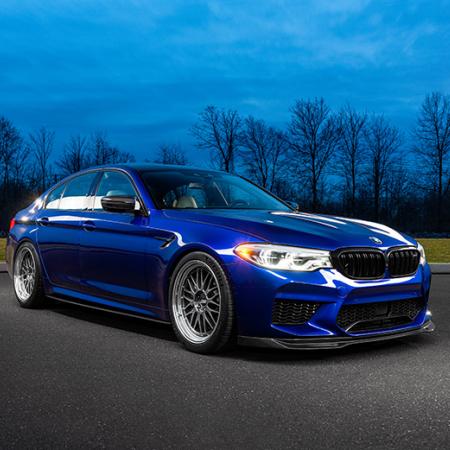BMW's South Korean sales have tripled since 2009 as it takes advantage of a free trade deal that gets even sweeter next month, posing a small-but-growing threat to Hyundai Motor Co ambition to sell more premium cars at home.
Reuters News Sevrice reports that the German automaker broke ground on its first driving center in Asia on Tuesday, about an hour's drive from the South Korean capital Seoul, and expects to draw more than 200,000 visitors a year. With an investment of 70 billion won ($62.05 million), the center will open next year, allowing visitors to test-drive BMW and Mini cars on a 2.6-km track consisting of six courses. Hyundai does not have such facilities in South Korea.
The fact that it chose South Korea over large Asian markets such as China andJjapan, "proves how much importance BMW places on the Korean market," Hendrik von Kuenheim, head of BMW's Asia, Oceania and South Africa region, said at the ground-breaking event.
The tougher competition comes at a bad time for Hyundai, which is negotiating with a powerful labour union that has crippled production during weekends for about three months this year. Its shares have fallen about 10 percent over the past year, while BMW's stock price is up 20 percent.
BMW and other foreign brands may take a bigger bite out of Hyundai's market share over the coming year. South Korea's tariffs on European cars with engines bigger than 1,500 cc such as BMW's 3-series will halve to 1.6 percent as of July and drop to zero next year. Tariffs on U.S. imports will be phased out in 2017.
South Korea is a relatively small market, ranking 11th in global auto sales last year. Foreign car makers increased their share of the car market to 12 percent this year, from less than 2 percent in 2003. Although still modest, the foreign brands pose a growing threat to local heavyweights Hyundai and Kia.
"(The) Korean market has become one of the fastest growing markets for BMW in the world," Kuenheim told Reuters.
"If we succeed in Korea, we probably would succeed in every other market in the world as well," Kuenheim said, saying Korean customers are "very demanding" in the standards, service requirements and expectations for luxury and consumer electronics.
Just as BMW is expanding in South Korea, Hyundai has grown its brand into a global powerhouse that now derives more of its sales from the United States andChina than it does from its home country.
Still, South Korea is a solid revenue base for the automaker. Hyundai sold twice as many of its profitable, large-sized sedans - Azera, Genesis and Equus - in South Korea than it did in the United States last year, according to company sales data. Those are the vehicles competing head-on with BMW sedans.
"The growing share of imported cars is a serious threat to Hyundai. Hyundai, Kia, albeit dominant players, do not have such driving facilities, and BMW's move will make them nervous," said Kim Phill-soo, a professor at Department of Automotive Engineering at Daelim University College in Seoul. ––Paul Duchene










